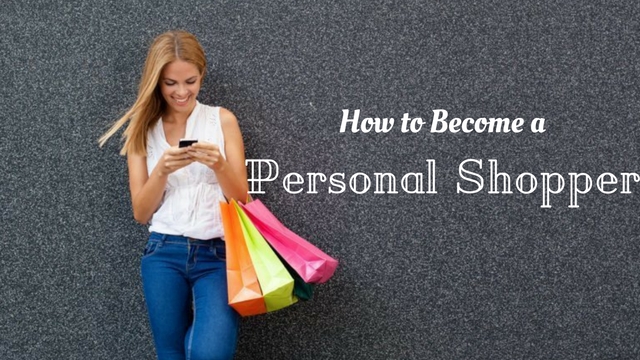Understanding how to become a Personal Shopper begins with your journey, gaining experience in retail or customer service while developing strong fashion knowledge. A Personal Shopper is someone who assists others, either naturally or professionally, in shopping for and buying clothes, accessories, or gifts. Personal shoppers work with clients or businesses, getting to know them and understanding their style, budget, and needs to provide expert advice and recommendations.
If you have a keen eye for fashion, can communicate well with others, have a passion for helping people, and enjoy giving the gift of personal style, being a personal shopper could be the perfect career for you. This guide will walk you through the steps required to become a personal shopper in the UK, the skills needed to excel in this role, and some tips to get you started.
What Does a Personal Shopper Do?
Personal shoppers provide clients with recommendations for clothing, accessories, or other products that fit their style, preferences, and budget. This role can vary widely depending on whether you work in a retail store, a boutique, or as an independent consultant. Typical duties of a Personal Shopper include:

- Understanding clients’ style preferences, body type, budget, and occasion for shopping: Before the shopping trip, the personal shopper meets with the client to determine their style preferences, body type, budget, and reason for shopping (e.g., a special occasion, wardrobe refresh, or gift shopping for someone else). The personal shopper strives to understand the client’s particular tastes and needs.
- Advising on fashion and product choices: Based on their expertise, personal shoppers advise clients on fashion trends, product lines, and brands, enabling clients to select clothing, accessories, gifts, or home décor that are suitable for the occasion and consistent with their preferences.
- Compiling product selections: Personal shoppers compile product selections tailored to their clients’ specific needs. This could involve curating clothes for a wardrobe revamp, compiling outfits for a special event, or selecting products that fit a client’s lifestyle.
- Helping clients in-store or online: Personal shoppers assist clients with in-store shopping by guiding them through the store, making recommendations, and helping them try on various items. Alternatively, they can provide virtual services by assisting clients with online shopping or purchases.
- Keeping abreast of trends and brands: To offer informed suggestions, personal shoppers must stay updated on current fashion trends, product lines, designers, and new collections, ensuring clients have access to the most fashionable garments available.
- Making shopping personal and pleasant: The personal shopper aims to create a seamless and enjoyable shopping experience for the client, saving them time and effort. This aspect of the job may involve scheduling and managing fittings, handling returns and exchanges, and following up later to maintain and build long-term client relationships.
Average Personal Shopper Salary in the UK

The salary of a personal shopper can vary depending on factors such as location, experience, and whether you work for a retail store or as a self-employed consultant. Entry-level personal shoppers working in retail may earn between £16,000 and £22,000 per year.
With experience and a solid client base, freelance personal shoppers or those working with luxury brands can earn significantly more, with annual earnings ranging between £25,000 and £50,000 or more. Some personal shoppers charge by the hour (typically £20 to £50 per hour), while others earn commissions based on the value of the purchases made by their clients.
Key Skills for a Successful Personal Shopper
The job requires a good understanding of fashion, strong communication skills, and a little business acumen. Here are some skills required for a personal shopper that are essential for succeeding in a career as a personal shopper:
- Exceptional Fashion and Product Knowledge: A personal shopper must be highly fashion-conscious and adept at spotting trends. Understanding different brands, designers, and product lines is essential. Knowledge of cuts, fits, fabrics, and colours is crucial for making informed recommendations. This expertise allows personal shoppers to curate outfits that enhance clients’ styles. Staying updated on the latest fashion developments is key to providing relevant advice.
- Excellent Communication and Relational Skills: Personal shoppers spend considerable time interacting with clients to learn about their preferences. Strong verbal skills are necessary for building rapport and fostering trust. A balanced mix of listening and professionalism helps in understanding client needs effectively. Friendliness in communication enhances the overall shopping experience. Tailoring advice based on these interactions is vital for client satisfaction.
- Empathy and Understanding of Client Needs: To excel in this role, personal shoppers must empathise with their clients. Understanding clients’ tastes, body shapes, sizes, and budget limits is essential for effective styling. This awareness helps create a comfortable shopping environment where clients feel valued. By recognising confidence levels, personal shoppers can provide appropriate recommendations. Ultimately, this empathy fosters long-lasting client relationships.
- Strong Organisational and Time Management Skills: Personal shoppers often juggle multiple clients and various appointments. Effective scheduling and management are crucial for maintaining professionalism. Organised personal shoppers can streamline their workflow and enhance client interactions. Keeping track of time ensures timely appointments and follow-ups. This efficiency builds trust and reliability in the client relationship.
- Sales and Customer Service: In many cases, personal shoppers work on commission, making sales skills essential. They must be adept at up-selling additional items while ensuring excellent customer service. Knowing when to make a sale and how to match products to clients’ needs is critical. Providing a positive shopping experience can lead to repeat business and referrals. Strong sales skills directly impact the success of a personal shopper.
- Adaptability and Problem-Solving: Shopping can be unpredictable, requiring personal shoppers to think on their feet. Clients may change their minds about purchases or have last-minute requests. A successful personal shopper must handle these situations creatively and calmly. Flexibility in approach allows for quick adjustments during shopping trips. This adaptability enhances the overall client experience and satisfaction.
- Networking and Relationship-Building Skills: Building a successful career as a personal shopper relies heavily on networking. Establishing connections with clients, retailers, and industry professionals is vital. Engaging in industry events can uncover new leads and opportunities. A loyal client base is cultivated through strong relationships and trust. Staying current with product offerings enhances the personal shopper’s reputation and effectiveness.
How to Become a Personal Shopper in the UK

Gaining experience in retail, fashion, or customer service is essential. It’s beneficial to seek roles such as a retail sales assistant, fashion stylist, store associate, or customer service representative, as these experiences align well with the retail and fashion industries. Even customer service roles can be advantageous, as they help you understand brand dynamics, product ranges, and the consumer journey from browsing to checkout. Working in retail can provide a strong foundation for a career in fashion or beauty, marketing, or even starting your own business.
To succeed, it’s important to have a solid grasp of current fashion trends and product knowledge. Stay informed about what’s trending and new in the fashion world by reading magazines, following events, and keeping up with influencers. Being knowledgeable about various designers, brands, accessories, and lifestyle products will enable you to offer insightful advice and suggestions to clients.
Developing a keen eye for style, mastering the art of mixing and matching outfits, and understanding colour theory will enhance your clients’ shopping experiences.
Building a portfolio or online presence is also crucial, whether you’re aiming for employment in a retail store or working as a freelance personal shopper. Create a lookbook showcasing your styling work, such as curated outfits or before-and-after transformations that reflect your ability to tailor styles to individual clients.
Establishing a social media presence on platforms like Instagram or Pinterest can help attract clients by showcasing your fashion expertise and personal shopper services. Engaging with your network online will further highlight your knowledge.
Practising excellent customer service and communication skills is vital. A positive experience will encourage customers to return and refer you to others. It’s important to listen attentively, communicate clearly, and provide exceptional service, which can be honed through various customer interactions in retail. Aligning your advice with clients’ needs will foster trust and create a more enjoyable shopping experience.
Considering training or professional development courses can be beneficial, though formal qualifications aren’t strictly necessary for personal shoppers. Short courses can enhance your skills, particularly if you’re interested in becoming a consultant. Institutions like City & Guilds and the London College of Fashion offer courses on fashion and styling, and numerous online fashion academies provide classes on topics such as fitting, body shapes, and colour theory. Additionally, customer service courses can be valuable if you lack retail experience.
Networking and building a client base is crucial in personal shopping, which thrives on relationships. Attend industry events, fashion shows, and local meetups to connect with clients and professionals in the fashion sector. Form partnerships with boutiques, department stores, and designers to promote your services effectively.
If you’re self-employed, gaining experience and referrals from friends, family, or community groups can be helpful. Once you’ve completed your training, seek opportunities to offer your services, whether it’s styling at a store or providing personal advice. Look for personal shopper roles in department stores, luxury boutiques, or high street retailers, and check job boards like Indeed, RetailChoice, and LinkedIn for openings.
For those interested in freelancing as a personal shopper, promote your services through social media, word of mouth, and local advertising, emphasising your experience, styling skills, and the value you can provide to clients.
Tips for Aspiring Personal Shoppers
If you’re considering starting a career as a Personal Shoppers, here are some tips to help you on your journey:

- Practice Putting Together Outfits for Different Occasions: Experiment with assembling outfits tailored to various events, such as formal parties, work environments, casual weekends, and short getaways. Try combining different styles, accessories, and colours to discover what works best together. Keep experimenting until you feel confident in your styling abilities. Document your looks to track your progress over time. This practice will help you develop a versatile approach to dressing for any occasion.
- Stay Updated on Trends and New Products in Fashion and Retail: The fashion industry is constantly changing, making it crucial to stay informed about the latest trends and seasonal styles. Regularly read fashion blogs, follow influencers, and watch runway shows to capture emerging looks. Visit retail stores frequently to observe new product arrivals and brand offerings. Engaging with these resources will enhance your understanding of the market. This knowledge will enable you to provide timely and relevant recommendations to clients.
- Connect with Retailers and Brands: Building strong relationships with retail staff, brand representatives, and store managers can significantly benefit your personal shopping services. These connections may grant you access to exclusive collections and special promotions that can delight your clients. Additionally, networking can lead to bespoke services tailored to meet individual client needs. Maintaining these relationships is key to staying in the loop about new launches and events. Foster genuine connections to enhance your professional reputation in the industry.
- Learn to Shop Within Different Budgets: Recognising that clients have varying budget levels is essential in personal shopping. Develop the skill to identify stylish options across a wide price range, catering to each client’s financial constraints. Learn where to shop for high-end pieces as well as budget-friendly finds. Familiarise yourself with seasonal sales and effective strategies for maximising your client’s spending power. Understanding how to leverage discounts and coupon codes will help you deliver great value to your clients.
- Enhance Your Customer Service Skills: Creating a pleasant shopping experience is vital for encouraging client loyalty and repeat business. Aim to be personable and approachable, making clients feel comfortable during their shopping journey. Actively listen to their needs and respond with empathy to demonstrate that you value their preferences. A positive interaction will leave clients feeling appreciated, increasing the likelihood of their return. Satisfied clients are also more inclined to refer others to your services.
- Develop an Eye for Detail: Personal shopping revolves around helping clients look and feel their best, so attention to detail is paramount. Focus on crucial aspects such as the fit of garments, the quality of fabrics, and how colours complement your client’s skin tone and body shape. Being detail-oriented allows you to make thoughtful choices that enhance your client’s overall style. Consider how each element contributes to the final look, ensuring a polished appearance. This meticulous approach builds trust and confidence in your recommendations.
Get Qualified as a Personal Shopper
The Art of Fashion Design, Comprehensive Store Assistant Training, Fashion Design Fundamentals Certificate, Diploma in Fashion Design Skills Bundle
Frequently Asked Questions
Why Should You Become a Personal Shopper?
Becoming a personal shopper can be an excellent choice for those who have a passion for fashion, an eye for styling, and a desire to help others look and feel their best. This role combines creativity with direct client interaction and offers the flexibility to work on-site or from home. Additionally, it can be lucrative, particularly for those who build a strong client base or work within luxury retail sectors.
Is a Career as a Personal Shopper Right for You?
If you love working with people, have a strong interest in fashion and trends, and enjoy creating personalised shopping experiences, then a career as a personal shopper could be ideal. This role requires great interpersonal skills, patience, and the ability to understand a client’s preferences and needs. It is also suitable for those who thrive in customer-focused, dynamic, and varied work environments. The role suits creative individuals with excellent interpersonal skills, as well as the patience and empathy needed to understand clients’ needs and preferences. It’s also perfect if you thrive in customer-focused, fast-paced, and varied work environments.
What Are the Salary Prospects for Personal Shoppers in the UK?
Entry-level personal shoppers in retail can expect a starting salary between £16,000 and £22,000 annually. However, this can increase significantly as they build their client lists, potentially reaching £25,000 to £50,000 or more, depending on the brand and whether they are freelance. Personal shoppers for high-end brands may earn £150 an hour or more. Alternatively, many personal shoppers work on commission, earning a percentage of sales.
What Qualifications Are Needed to Become a Personal Shopper?
While there are no formal qualifications required to be a personal shopper, experience in retail, fashion, or customer service is beneficial. Taking courses in areas such as fashion styling, fashion merchandising, or customer service can enhance your employability. Essential qualities for a successful personal shopper include fashion knowledge, style awareness, and strong communication skills.
Do You Need Retail Experience to Start a Personal Shopper Career?
While retail experience is not compulsory, it is highly beneficial. It allows you to learn about customer needs and product lines, as well as sales techniques and how to effectively engage with customers. Additionally, it helps you gain confidence in interacting with clients in a natural and relaxed manner. Experience in a fashion store or another customer-facing role can help you develop the practical skills necessary for personal shopping and styling.
What Is the Career Outlook for Personal Shoppers?
The demand for personal shoppers is on the rise, as consumers seek more personalised shopping experiences and greater access to the latest products. Opportunities for personal shoppers exist in department stores, luxury fashion boutiques, high street retailers, and online fashion platforms. The growing trend of virtual personal shopping also allows freelance personal shoppers to target a global clientele. A successful career in this field can lead to roles as a fashion consultant, stylist for fashion shoots, or brand ambassador.
What Are the Career Progression Options for Personal Shoppers?
With sufficient experience, a personal shopper can advance to roles such as Senior Personal Shopper, Fashion Stylist, Wardrobe Consultant, or Brand Specialist. You may also choose to specialise in areas like luxury retail, celebrity styling, bridal shopping, or corporate styling. Freelancers have the opportunity to establish their own shopping businesses, expand their client base, and offer additional services, such as image consulting or one-on-one styling sessions.
What Are the Exit Options and Opportunities Beyond Personal Shopping?
Many skills acquired as a personal shopper—such as styling, customer service, sales, retail design, product knowledge, trend awareness, and business development—are highly transferable. A successful personal shopper may transition to roles such as Retail Buyer, Visual Merchandiser, Fashion Marketer, Fashion Blogger, or Event Stylist. Those with a commercial mindset might pursue a career as a retailer, fashion consultancy business owner, or even start their own personal shopping enterprise.


